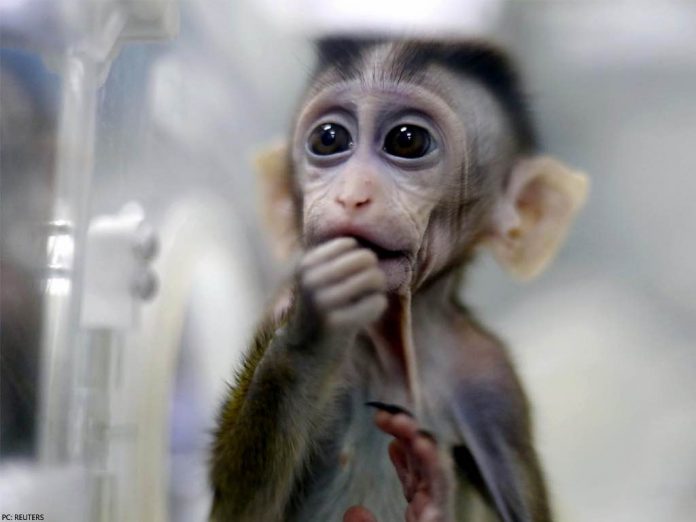The researchers have used gene-editing techniques on rhesus macaque monkeys to make their brains smarter.
According to a recently-published study, Chinese scientists have used gene-editing techniques on rhesus macaque monkeys to make their brains smarter. The truly scary part is that they used human brain genes.
The researchers hacked the human version of a gene called MCPH1 linked to brain size into the monkeys. This bred a new type of smarter monkey with better reaction times and improved short-term memory.
What the experiment essentially did was make the monkeys’ brains develop along a human timeline. The work, argue the researchers, is about understanding human evolution.
“This was the first attempt to understand the evolution of human cognition using a transgenic monkey model,” Bing Su, the geneticist at the Kunming Institute of Zoology who led the effort, told MIT Technology Review.
The experimentation has not been well received, however, by the scientific community. According to MIT Technology Review, several Western scientists, including one involved with the study, have now called the experiments “reckless” and “questioned the ethics of genetically modifying primates.”
“The use of transgenic monkeys to study human genes linked to brain evolution is a very risky road to take,” said James Sikela of the University of Colorado who was not involved with the study.
“It is a classic slippery slope issue, and one that we can expect to recur as this type of research is pursued.”
Too dangerous
Sikela and her colleagues wrote a paper on the matter where they concluded that it is far too dangerous to add human brain genes to apes because they are too similar to us.
“As apes are our closest evolutionary relatives, transgenic introduction of HLS sequences into these species has the greatest potential to produce ‘humanized’ phenotypes and also to illuminate the functions of these sequences. We argue that such transgenic apes would also be more likely than other species to experience harm from such research, which renders such studies ethically unacceptable in apes and justifies regulatory barriers between these species and other non-human primates for HLS transgenic research,” they wrote.
Su’s work is dedicated to looking for signs of Darwinian selection. In the past, he has explored such evolutions as Himalayan yaks’ adaptation to high altitudes and human skin color in cold winters.
Now, he is exploring the biggest riddle of all often called “the jewels of our genome.” The term refers to what makes us truly human.
Do you think the research has gone too far?








